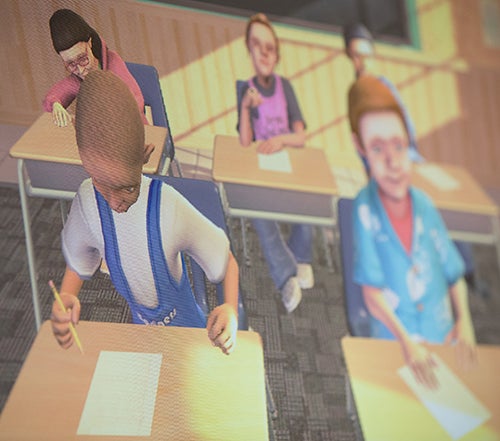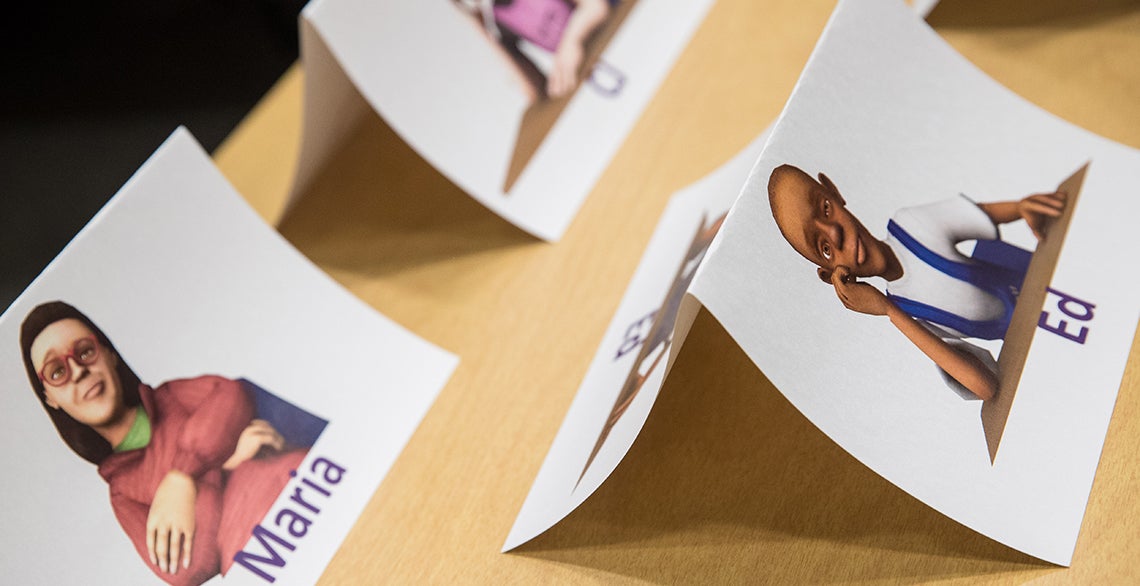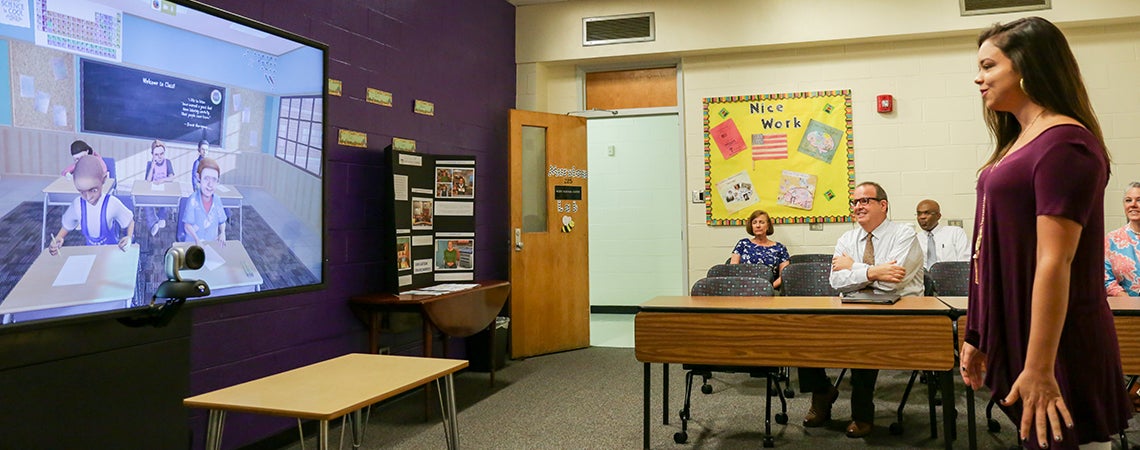STEM FOCUS
ECU College of Education receives $1.6 million from two national science grants
Two National Science Foundation grants totaling almost $1.6 million will help East Carolina University’s College of Education improve undergraduate science, technology, engineering and math, or STEM, education and introduce computational thinking to schoolchildren in rural areas.
An almost $1 million grant will fund Integrating the Computer Science for All initiative, or iCS4All, aimed at bringing computer science and computational thinking to Sampson, Jones and Duplin county schools. ECU’s Department of Computer Science and the Friday Institute at N.C. State University will collaborate on the project.
A second grant of $599,939 will fund Project INTERSECT (Interactive STEM Education Competence in Teaching) to explore how simulated classroom training affects the ability of ECU math and science teacher candidates to use discourse as a means of instruction.
“We are very excited about these competitive National Science Foundation awards that focus on STEM education,” said Dr. Grant Hayes, dean of the College of Education. “This is an amazing opportunity for the College of Education to bring a measure of added value to schools and communities throughout eastern North Carolina.”
The three-year grant projects will begin this fall.

Simulated students in the College of Education’s Mursion lab allow ECU education majors to practice teaching before moving into a real classroom. (Photos by Cliff Hollis)
Leading the iCS4All initiative is Matt Militello, ECU’s Wells Fargo Distinguished Professor in Educational Leadership, and co-principal investigator Martin Reardon, assistant professor of educational leadership.
Computational thinking is a problem-solving process that uses methods such as finding patterns in data to create solutions using a series of ordered steps or algorithms. While primarily used in computer science, Militello said computational thinking can be used in problem solving across all disciplines — including art and music.
Middle-school teachers in Sampson, Jones and Duplin counties will learn how to introduce computer science and computational thinking to their students through a massive open online course developed by the Friday Institute.
“We are taking computational thinking to places that really don’t have access to this and disciplines that aren’t usually discussed in terms of computer science,” Militello said.
By using math games and other activities to encourage students to think about finding patterns to determine solutions, Militello said there will be short and long-term benefits for the students, teachers and parents.
“If you look really long term one of the things we are doing is turning them on to careers that are a little abstract … especially in a rural setting,” he said. “Also, having them exercise their brains in different ways and across disciplines will help them with the big tests like the ACT or SAT that determine if they get into colleges.”
Militello said teachers will have access to top-tier professional development opportunities and parents will be engaged to support the iCS4All project with their children at home.
With Project INTERSECT, simulation will be used to help pre-service math and science teachers, or teacher candidates in training, learn how to confidently voice their ideas and respectfully support or challenge the diverse views of others.
“The outcomes of this National Science Foundation funded work will inform and support changes to STEM teacher education across the state and beyond by helping pre-service teachers engage their students in thoughtful, content-based discourse,” said Daniel Dickerson, principal investigator and associate professor of science education. “Equally important, pre-service teachers will learn how to help their students speak respectfully and professionally to one another even when they disagree.”
Dickerson, who also coordinates STEM CoRE (Collaborative for Research in Education), will lead the research effort with co-principal investigators Holly Fales and Christine Wilson, instructional technology consultants and Mursion coordinators in the College of Education. Carrie Lee, assistant professor of mathematics education, and Ricky Castles, assistant professor of engineering, also are involved in the study.
During the project, ECU students taking elementary math and science methods of teaching courses will participate in Mursion virtual reality classroom simulations in which discourse skills in the form of teacher moves (tactics employed by teachers to achieve an instructional goal) will be coded and analyzed. The tactics will be reviewed to measure the impact of immersive simulation preparation during methods courses on discourse and engagement skills in the live classroom.
“The ability to use Mursion at ECU is a wonderful that tool pre-service teachers have available to them to enhance their training before they get into the field that has never been an option before,” Wilson said.
Castles said the project will help teaching candidates elevate interest in STEM.
Earlier this year, the College of Education received a five-year, $1,192,468 million grant from NSF to provide scholarships for additional math and science teachers in eastern North Carolina as well as gain insight into their early teaching experience.
The NSF Noyce Grant, named for famous physicist Dr. Robert Noyce, will provide 30 scholarships for ECU students to earn science or mathematics licensure and a master’s degree. The grant also will fund research on the challenges of teaching math and science in rural, low-wealth and high-need schools.

ECU education students are exposed to a range of student personalities and behaviors in the simulated classroom in the College of Education’s Mursion lab.
